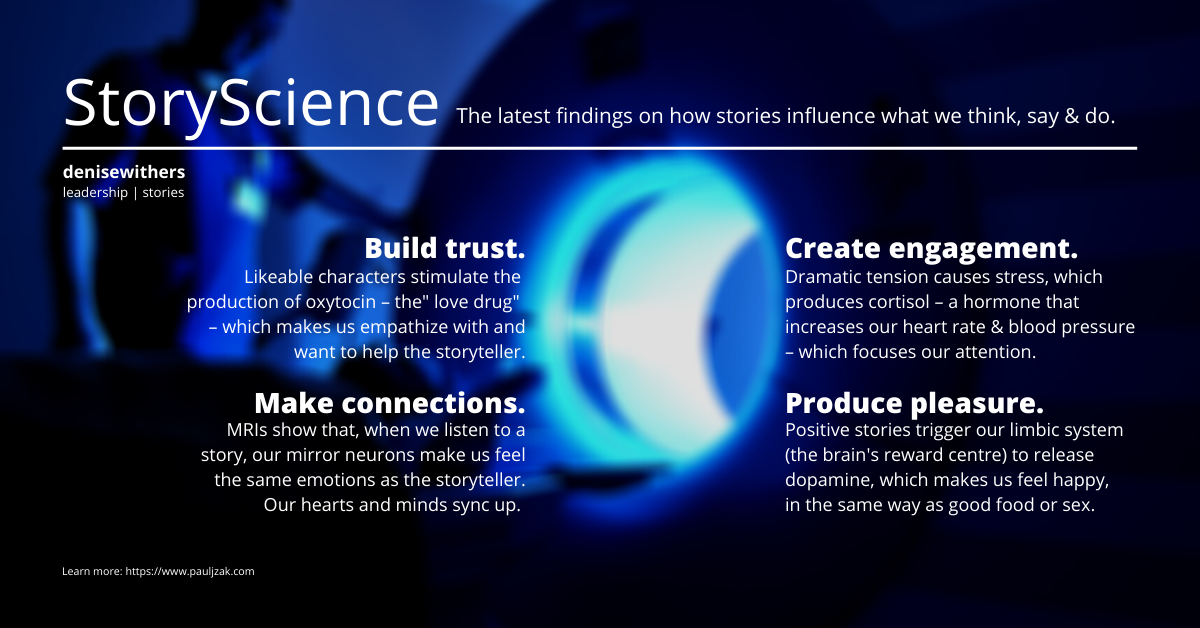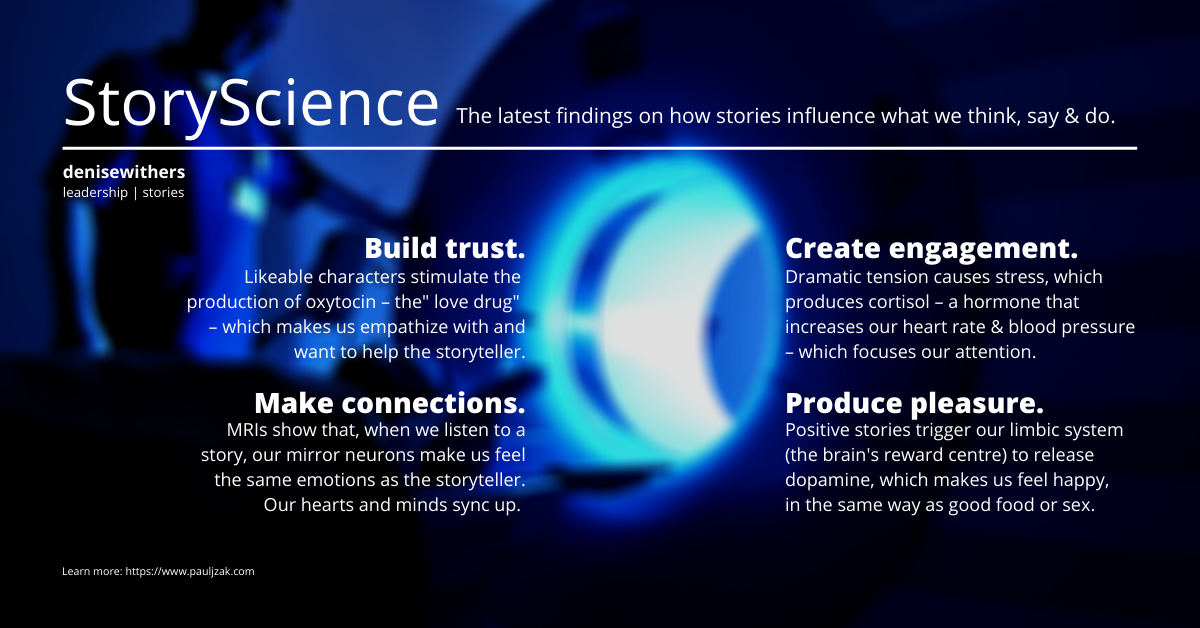Most leaders know from experience the power of stories to influence what we think, say and do. Still, it’s always nice to know the science behind the theory. In particular, I’m fascinated by the idea of narrative intelligence – our innate ability to make sense of the world and influence each other through the lens of stories.
So, this is a quick snapshot of what we’ve learned so far.
As soon as we start watching or listening to a story, our mirror neurons begin to fire and the activity in our brains mirrors that of the storyteller. We feel the same emotions and share the same experiences. We even anticipate and predict what’s coming next.
As the story continues, we begin to realize that the hero will have to take risks to achieve his goal or solve her problem. We get caught up in this dramatic tension and start to share the hero’s stress. This stimulates the production of the steroid hormone cortisol, which gets and focuses our attention.
Then, as we start to relate to the characters and see ourselves in them, our bodies release a neuropeptide called oxytocin – which is nicknamed “the love drug” because it’s the same chemical nursing mothers release when they breast-feed. Oxytocin makes us feel warm, fuzzy and happy, which promotes trust and cooperation. This emotional state – called transportation – lasts long after the story is over, inspiring listeners to offer support and help to the storyteller (such as donating money).
Finally, if the story has a happy ending, it triggers the limbic system, (the brain’s reward centre), to release dopamine, which makes us feel pleasure and creates a strong memory of the event that produced it.

If you’re interested in learning more, definitely check out the work of Dr. Paul J. Zak, who made many of these discoveries. And take a look at some of the better books on the subject.
Story Smart: Using the science of story to persuade, influence, inspire and teach.





